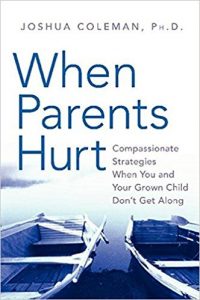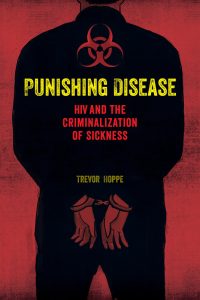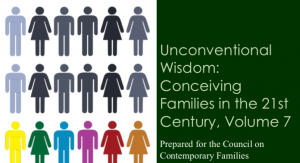
If you couldn’t come to CCF’s 19th conference, Conceiving American Families in the 21st Century: Reproductive Policies, Practices, and Technologies, you don’t know what you were missing. So I’m here to tell you. Held on March 2nd in our new single-day format, it was a great success and the theme could not have been more timely. Individual rights, freedoms and immunities are being fiercely debated globally and locally, and if, how and to whom babies are born are part of that debate. Throughout the day, issues of positive and negative rights related to reproduction were a recurring theme in lively presentations and discussions.
The theme of individual rights influenced the conference even before it began this year. Traditionally, we convene at our organizational home, which has been UT Austin since 2015. However, Texas has recently implemented a campus carry law, which gives individuals the right to carry licensed concealed handguns in public university conference rooms. Some states have since denied travel funding to presenters invited to speak at these institutions. Considering safety and funding concerns, our diligent co-chairs, Adina Nack and Josh Coleman, changed locations to the DoubleTree hotel nearby, where firearms are prohibited.
Our flexible co-chairs continued to work around hurdles shortly before the conference began. Illness prevented keynoter, Mary Mason, from coming at the last minute so her Babies of Technology co-author and son, Tom Eckman, took the podium alone. We heard startling stats on the $100 billion worldwide assisted reproduction market, and examples of how the rights of the child can get lost in the for-profit designer baby marketplace. We learned about new technologies such as CRISPR-Cas9 gene editing techniques that can snip defective disease causing genes and keep them from being passed on to offspring. When or if this technology is ready for prime time, who will have the right to decide what genetic defects will be permanently removed from family lineage? What will be the unintended consequences of permanently altered DNA?
Our second keynoter, Carole Jaffe, gave us stunning examples of coercive reproductive policies, and how denial of access to adequate family planning services disproportionately affect poor, black, and brown women. She noted that maternal mortality is three times higher for black women than white women, and fifty-five percent of births today are to mothers receiving Medicaid. These women are trapped in a system with insufficient birth control choices, lack of access to termination of unwanted pregnancies, and inadequate healthcare after birth. In her talk, Amanda Stevenson also pointed out the coercive state policies that result in disproportionate distribution of IUDs and implants to Medicaid recipients in Texas.
Lisa Ikemoto and Sharmila Rudrappa eloquently illustrated how laws banning commercial surrogacy, which are intended to protect working-class women’s rights to fair compensation and treatment, can backfire. In some countries, women end up even more vulnerable as they move across borders to places where state immunity decreases their control over compensation and care. We learned how regulation rather than outright banning can protect women’s rights and give women more control over their surrogacy.
Teresa Morris raised questions about who is protected and who is vulnerable during prenatal care and delivery. For example, although 99.8% of the problems detected via continuous fetal monitoring are false positives and expose the mother to additional radiation, continuous monitoring persists to lower malpractice risk. Since the C-section is the “gold standard of care” in malpractice court cases, a dramatic rise in U.S. C-sections may also be attributed to provider liability concerns that trump maternal health considerations.
I could go on. All our presenters brought something new, enlightening, counter-intuitive, or clarifying to the table.
A hallmark of all CCF conferences is the generous time devoted to Q & A. Negative and positive reproductive rights dominated these lively discussions as well. Some hot topics were: How will legal and ethical codes regulate the eugenics of commercial surrogacy, when cryobanks broker higher prices for “fair complexion” “Ivy League”, and “celebrity look-alike”? How are babies being treated like commodities rather than a public good? What complex immunities and injustices will the new Conscience and Religious Freedom rule usher in? For example, under this rule, what happens to frozen embryos when the private hospital that stored them is taken over by a Catholic hospital?
As you know, CCF’s mission is to disseminate robust family research and best practice findings from diverse disciplines to a broad audience. This year we expanded our reach by including two non-academic speakers who founded community organizations that educate the public about family issues. Mo Cortez is an intersexed, trans, Latino man who co-founded the Houston Intersexed Society for this purpose. His personal stories about reproductive injustices and denied rights in the intersexed and transsexual communities hit home viscerally. Marsha Jones, co-founder and executive director of the Afiya Center, shared stories of black women who are not supported for fertility control, pregnancy termination, healthy pregnancy or healthy baby. Both speakers contributed such rich additions to the human rights and justice conversation that we will hopefully be adding more community educators to our rosters in the future.
Several features that make CCF conferences special were brought back by popular demand. Flash Sessions, which allow budding researchers to present their work in five minute summaries, were thought-provoking and left us wanting more. We were also left wanting more at our fabulous Media Workshop. Stephanie Coontz, CCF Director of Research and Public Education, gave us cutting edge tools for producing op-eds that stand out. Board member Philip Cohen, who founded the SocArXiv.org open archive for social sciences, and the popular FamilyInequality blog, brought us up to speed on social media and blogging do’s and don’ts. Board member and UMass economics professor, Lee Badgett, shared her insights from her latest book, The Public Professor.
The CCF Media Award went to noted ProPublica and NPR reporter, Nina Martin, for her outstanding reporting on abortion, pregnancy, and maternal health. Two 2017 pieces, Nothing Protects Black Women From Dying in Pregnancy and Childbirth, (NPR audio here) and The Last Person You’d Expect to Die in Childbirth are brilliant examples of her recent work.
Hat tips to all who made the 2018 CCF conference possible – our phenomenal organizers Josh Coleman and Adina Nack, CCF Executive Director Jennifer Glass, her above-and-beyond grad assistant Rachel Donnelly, and all of our UT co-sponsors. And special thanks to Pam Smock, for her generous donation that allowed CCF to fund an early career student scholar travel award. This year’s award went to Elizabeth Nalepa, of Case Western Reserve with honorable mention to Maurice Anywie, of Bowling Green State.
This report is a conference tasting menu. For more on this year’s content, go to this link. If you missed this year, another theme is already in the works for 2020. Manage your FOMO (fear of missing out), stay tuned and hope to see you next time!




 grown children expect to be friends. Many have that experience. But, remarkably,
grown children expect to be friends. Many have that experience. But, remarkably,  Trevor Hoppe is an Assistant Professor of Sociology at SUNY-Albany, and recently published the book
Trevor Hoppe is an Assistant Professor of Sociology at SUNY-Albany, and recently published the book  In preparation for the
In preparation for the 

